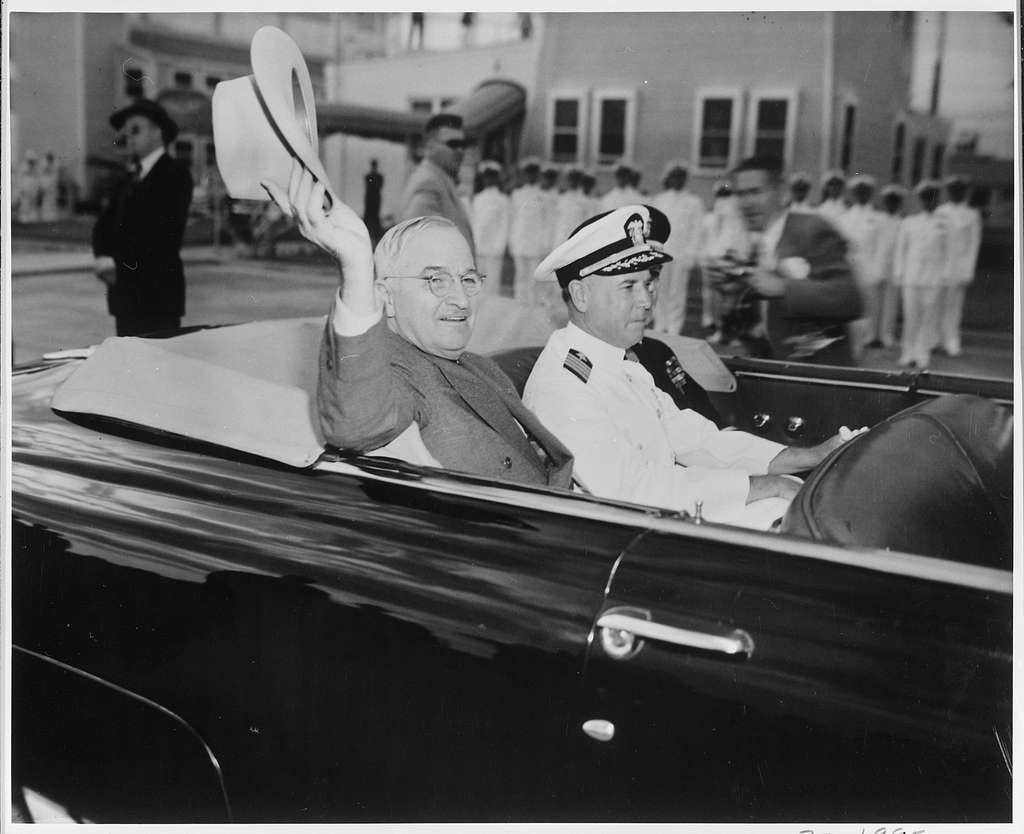- Harry Truman was the first U.S. president whose life and career was dominated by the automobile. As a private citizen, he sold memberships to a motorists' club and lobbied for federal funding to build highways. As senator and president, he fought for traffic safety and tried to pass legislation requiring tests to get a driver's license. (Eno Center for Transportation)
- The November election brought doubts about whether the Trump administration will continue President Biden's record levels of transit investment (Railway Age). Specifically, Trump's election ended any hope of a federal bailout for struggling Bay Area transit agency BART (San Francisco Chronicle).
- The U.S. DOT released a playbook of strategies for state and local governments to tackle climate change, including active transportation and transit-oriented development. (CNU Public Square)
- The U.S. Supreme Court will hear oral arguments on Tuesday in a case that could weaken the federal environmental review project for infrastructure projects. The case stems from a Utah rail line that would transport oil. (The Conversation)
- Portland officials attribute persistently high levels of traffic deaths to a post-pandemic erosion of cultural norms where people feel like they can drive however they want. (BikePortland)
- A new comprehensive plan makes Milwaukee County eligible for a $5 billion pool of federal funds for safer streets. (Urban Milwaukee)
- Virginia, Maryland and Washington, D.C. officials are discussing more regional funding for the D.C. Metro. (Virginia Mercury)
- The Denver Regional Transportation District approved a record-high $1.2 billion budget. (Denver Post)
- Support in Michigan is growing for more investment in transit. (Bridge Michigan)
- WBUR interviewed the author of a report on how the Massachusetts Bay Transportation Authority went broke.
- The L.A. Metro approved plans for a North Hollywood-Pasadena bus rapid transit line. (Pasadena Now)
- A St. Louis bill would revamp the traffic-calming system so that residents asking for speed humps don't have to depend on an alderman who may or may not want to help them. (St. Louis Magazine)
- Philadelphia won't start ticketing drivers for blocking bike and bus lanes until next year, when new signs are installed. (CBS News)
- Tempe is installing red-light cameras at 14 intersections. (KTAR)
- Kansas City is building 10 blocks of sidewalks to connect a school to the surrounding neighborhood. (KSHB)
- Washington Post readers set the paper straight about editor Marc Fisher's recent anti-bike lane column.
Today's Headlines
The Buck Stops With Monday’s Headlines
Harry Truman was known for whistle-stop campaigning, and interstates are associated with Eisenhower. But that's not entirely true, as the Eno Center explains.
Stay in touch
Sign up for our free newsletter
More from Streetsblog USA
Americans Demand Congress Fund Active Transportation In Next Infrastructure Bill — And Not Just The Bike/Walk Advocates
A "back to basics" surface transportation bill — as Republicans are seeking — would be devastating for road safety and small businesses.
Friday’s Headlines Take a Lot to Laugh, Take a Train to Cry
I ride on a mail train, baby. Can't buy a thrill.
Talking Headways Podcast: The Future of Transit
Yonah Freemark talks with Jeff Wood about the state of the trains across the world.
Are Roundabouts Just For Rich People?
And if not, how do we get more of them in the low-income neighborhoods that need life-saving infrastructure the most?
Thursday’s Headlines Need Alternatives
Economics 101: Competition brings down costs.
How Recreational Cycling Can Lead to Safe Streets For All
These cities are leveraging joy to fight for connected communities.






